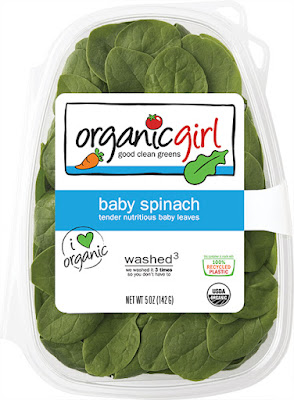The first issue to consider about spinach nutrition is how it is digested by the body. If it is taken in its whole form, without any additives, then it is highly likely that a majority of the nutrients will pass through and be used by the rest of the body. The minerals, folic acid, and iron are the most common ones to see as nutrients in the blood stream. These elements help with the absorption of other nutrients, particularly calcium and magnesium, also help to build strong bones. However, if a serving of spinach nutrition is cooked at an elevated temperature (like over 2 degrees Celsius), then it becomes less nutritious because the spinach has lost all of its vitamins and minerals.
While spinach nutrition may sound like it is a concern, there are some simple ways to assure that it is present in your plates and that you are getting all of the vitamins and minerals that you need. One of the best ways is to buy foods that are already seasoned with minerals and vitamins. Steamed broccoli is an excellent example of using food that already contains minerals and vitamins for a delicious side dish.
Another consideration for spinach nutrition is keeping blood sugar levels stable. Blood sugar is a major factor in the development of a number of illnesses and diseases and keeping it low is important to avoiding these complications. One of the nutrients found in this green vegetable is beta-carotene, which helps to keep blood sugar levels stable. In addition, spinach contains soluble fiber, which can help with constipation, as well as protect against cholesterol problems and heart disease. All of these health benefits make spinach a very good addition to a healthy diet.
Spinal cords are tough little bundles of nerve tissue that actually play an important role in our nervous system. This is the area where impulses are sent from one cell to the next, and it is here that high levels of vitamin C are needed for optimal brain function. The high levels of vitamin C found in spinach promote nerve transmission and improve brain function. While spinach has rich fiber, it also provides a source of vitamin C for ensuring that the body gets enough of this important nutrient. If you want to ensure that your body is getting all of the vitamin C it needs, spinach is an excellent choice.
Like other vegetables, spinach also contain a range of important phytonutrients. Phytonutrients are a group of minerals and vitamins that are vital to human health. For example, vitamin c is essential in fighting off cancer. High levels of vitamin c have been linked with an increased risk of heart disease and may prevent hemorrhagic stroke as well. Spinach nutritionists advise that while you do not need a large amount of vitamin c in your diet, eating plenty of spinach regularly will boost your levels of it.
Another way spinach nutritionists have determined that vegetables may help protect against heart disease is that they contain a range of antioxidants. These compounds are able to neutralize free radicals in the body, which can cause a number of serious health problems. Some of the antioxidants found in spinach include lycopene and quercetin, both of which are associated with a decreased risk of cancers. While eating plenty of vegetables every day does lower the risk of heart disease, experts caution that eating these vegetables may be even more important if you are trying to avoid certain types of cancer.
In general, spinach nutrition specialists agree that it is important to eat foods with carotenoids and phytonutrients, especially as you get older. As you age, your body produces less of them and eating foods high in them helps replenish what you have already lost. Spinach is especially rich in carotenoids and phytonutrients, so it makes sense to eat a large amount of it each day. Consuming a diet rich in antioxidants may reduce your risk of heart disease and other serious health problems.
